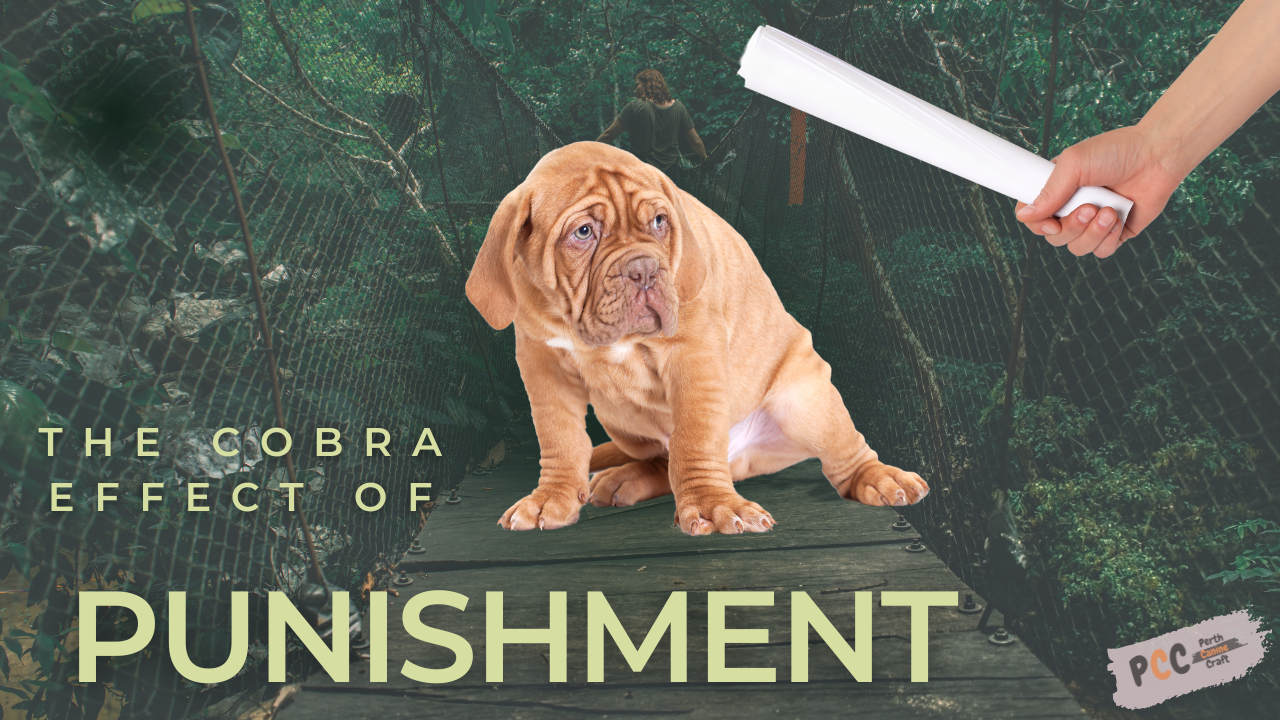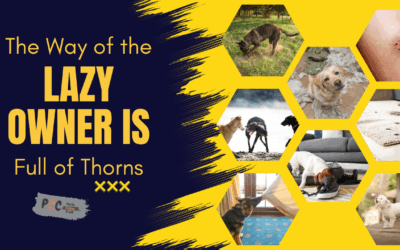In our quest to shape desired behaviours in our canine companions, the use of punishment often emerges as a seemingly effective strategy. However, akin to the Cobra Effect, the unintended consequences of punishment-based training can be far-reaching and detrimental. Join me as we delve into the pitfalls of punishment in dog training, unravelling its complexities and shedding light on the potential repercussions.
Unravelling the Trade-offs: Punishment, intended to deter undesirable behaviours, can inadvertently lead to a myriad of unintended consequences. Let’s explore the trade-offs:
a) Misunderstood Consequences: Punishing a dog for failing to recall, for example, may not reinforce the desired behaviour of returning to the owner. Instead, it can create confusion and anxiety, potentially leading to false associations and generalized fear responses. Imagine you punish your dog for not coming when called. Instead of learning to come when called, your dog might become scared of other things, like other dogs. This fear could spread to different situations, making your dog afraid in general.
b) Inconsistency Breeds Anxiety: Inconsistency in punishment can sow seeds of anxiety in dogs, leading them to navigate interactions with trepidation. If sometimes you punish your dog for jumping on people and sometimes you don’t, your dog gets mixed signals. This inconsistency can make your dog anxious and unsure about what behaviour is okay.
c) Owner Absent Problems: Punishment that can’t administered in the absence of the owner, but can only be administered via the owner (thus the owner’s presence is required) can yield unintended consequences, eroding trust and exacerbating behavioural issues. Dogs may attribute punishment to the owner’s presence rather than their own actions, leading to continued misbehaviour and strained relationships. Let’s say your dog pees indoors when you’re not around, and you punish them when you come home and find it. Your dog might start associating your presence with punishment, even though it’s their own actions causing it. This can lead to a strained relationship and continued misbehaviour.
d) Worth of Punishment: Some dogs may view punishment as a mere challenge to overcome, especially if the reward outweighs the consequences. Some dogs might enjoy the challenge of doing something they’re not supposed to, like chasing rabbits, even if they know they’ll get punished. This means they might keep doing it because the thrill outweighs the consequence of punishment.
Stay tuned for the next instalment, where we’ll explore alternative strategies and delve deeper into the nuances of effective dog training practices. Until then, let’s approach training with mindfulness.
Together, let’s embark on a journey towards enlightened dog training, where empathy and understanding pave the path to success.





0 Comments